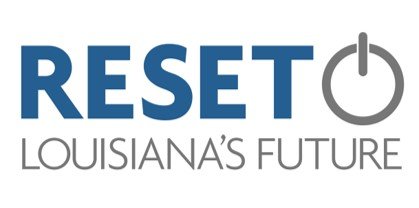By David Jacobs | The Center Square | Jul 26, 2019
While it would be wrong to say the early days of Louisiana’s campaign season have been devoid of substance, a lot of the rhetoric hasn’t really been focused on the state’s longstanding policy problems.
Instead, a lot of ink, pixels and airtime have been used for unfavorable comparisons to former Gov. Bobby Jindal, pledges of loyalty to President Donald Trump, and immigration controversies that aren’t really within the purview of state government.
Barry Erwin, president and CEO of the Council for a Better Louisiana, fears that once the various campaigns really get going, candidates still won’t be seriously addressing the various problems that have been vexing the state for decades.
“That’s not good for us,” he said. “What we’re trying to do is say, ‘These are the things that can move the needle. These are the things that can make a difference.’”
Erwin, along with leaders of the Committee of 100 business roundtable and the Public Affairs Research Council of Louisiana, met with reporters Friday to discuss the public launch of RESET Louisiana’s Future, their joint effort to focus attention on what they feel should be front-burner issues for this year’s state campaigns and the next couple legislative sessions.
The groups don’t plan to make endorsements, donate to campaigns, or pressure anyone to sign any pledges. They acknowledged Friday that many of their proposals have been shot down in the past, but argued that high legislative turnover driven by term limits, coupled with a growing consensus around at least some issues, creates opportunities for change.
“Nothing happens while you wait,” PAR’s Robert Travis Scott said. “A lot of times it just takes the right chemistry. You want to have the momentum and that information and that education there when the chemistry comes together.”
Scott said the 2017 package of criminal justice changes is a good example. Advocates worked on those issues for years, but it didn’t come together until the right group of lawmakers were in office.
Defending those changes is part of the RESET agenda. So is constitutional reform, though members don’t think a constitutional convention is strictly necessary.
Taxes, state pensions, education, infrastructure, and workforce development also are on the table. Members say they’ve met with more than 90 candidates for office, including all three major candidates for governor, and are beginning to sit down with incumbents. The response has been positive so far, they say, though no one has yet adopted the RESET agenda into their public platform.
Many officeholders and political observers attributed the lack of major reforms during the last legislative session to the fact that this is an election year. RESET leaders think next year, and the fiscal session the year after, could be different.
“If they don’t do something significant in the first year after an election, then we’re really in deep trouble,” Erwin said. “Something is going to stick.”
Items on the RESET agenda include:
Constitution: Whether through a convention or an amendment process, making it shorter and more focused on general principles rather than specific provisions. Grant authority to specific institutions but leave the details to officeholders.
Pensions: Modernize retirement system to accommodate shorter-term employees. Make realistic assumptions about returns on investment and unfunded liability payments. Eliminate “experience account” method for cost-of-living adjustments. Consider instituting a “hybrid” plan including elements of defined-benefit and defined-contribution systems.
Taxes: Permanently freeze the 100 sales tax exemptions currently suspended. Implement a more uniform and centralized sales tax collection system. Eliminate the federal income tax deduction with offsetting state tax reductions. Phase out or eliminate the franchise tax. Allow local governments to increase property tax revenue and decrease state spending on local governments.
Early childhood: Spend more general fund money on care and education for children from birth to age 3. Determine if certain dedicated revenue streams can be redirected to early childhood programs.
K-12 education: Expand access to dual enrollment courses that earn college credit or progress toward workforce certification. Better align high school coursework with regional, high-demand workforce needs.
Higher education: Commit to Board of Regents’ goal of ensuring 60 percent of adults have a degree or high-value credential by 2030.
Criminal justice/public safety: Defend and fully implement the 2017 changes. Establish a task force to work toward evidence-based crime prevention and crisis response, so that substance abuse and mental health issues don’t lead to prison.
Transportation: Increase recurring revenue through gasoline taxes, fees and other means. Utilize alternative delivery methods such as public-private partnerships.
More information is available here.
